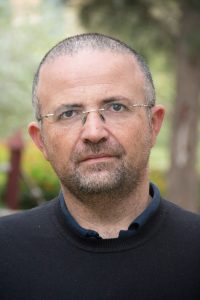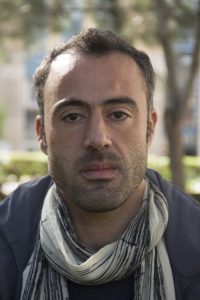Cassi Camilleri talks to Dr Albert Gatt and Prof. Gordon J. Pace about their efforts to make life easier for legal professionals across the island by digitising Maltese law through an app called Assiduity.
You would be forgiven for thinking that information technology and the legal world do not mix. In ways, the two disciplines are diametrically opposed: one being as ‘old skool’ as they come, the other still-nascent by comparison. If they were people, they would definitely not get along. The technological revolution sent lawmakers into an unrelenting frenzy, trying to keep up with an endless stream of new modus operandi, all the while creating effective regulations to keep all stakeholders safe.
That said, technology is now being incorporated into the legal process, and not just by using computers and word processing to draft out contracts and agreements. Researchers from the University of Malta (UM) are collaborating with legal professionals to create an app called Assiduity that is set to revolutionise Maltese lawyers’ workflow.
Where does the money go?
To receive legal advice, you need two things: time and money. This notion is so pervasive that a large portion of people willingly give up on a legal issue, even before they start pursuing it through the proper channels. Why? Because they want to avoid the stress that comes with even trying to pursue legal action. Upon reflection, one might pause for a moment to question this status quo, asking where the money actually goes? A one word answer follows: research.

Research is where the bulk of the money, and time is spent in the legal arena. This is due to the meticulous nature of legal work, requiring lawyers to trawl serially through mountains of legislation and policy documents, referencing and cross referencing, to build up a case. It was this issue brought together UM researchers Dr Albert Gatt (Institute of Linguistics and Language Technology) and Prof. Gordon J. Pace (Department of Computer Science).
‘For quite a while we’ve been interested in this problem of interpreting texts and getting to their underlying meaning,’ says Gatt. Being a computational linguist, Gatt builds models of how human language is understood, in the hope of making artificial intelligence models smarter and more intuitive. As a computer scientist, Pace had already started to experiment with law and text: ‘At one stage I started working on logical techniques to analyse law. But this was from a purely mathematical perspective. So, the next step was to push it forward and work with natural language text.’
Gatt sees ‘meaning’ as something that underlies language. ‘It is the logic in a piece of law that describes who has to do what in a given situation, and when.’ Problems arise when the English the law is written in gets in the way of the underlying meaning itself. ‘So as I focus on techniques to analyse language, Gordon develops his formulas to represent meaning.’ And a great partnership was born.
Going deeper
Assiduity’s beginnings are found in a different project. Gatt and Pace were initially collaborating on a contract drafting tool. The software was intended to have various functions such as highlighting clauses relevant to the lessee in the case of a rental agreement. It would allow lawyers to leave notes for each other on a contract. It could also be used for tracking changes in law. ‘The idea was to have lawyers’ brains dedicated to reasoning and build a case, instead of being occupied with the tedious double-checking and sifting through masses of documents to ensure there are no inconsistencies,’ says Gatt.
Pace and Gatt built a prototype of the tool, but the need for a more structured and searchable representation of legal data began to feel like a requirement in its own right, a potentially valuable standalone application for practitioners in the field. ‘Before you can start doing intelligent stuff with an article of law, first you have to break it up into chunks and find the links between the different documents,’ Gatt says. And this is how Assiduity came to the fore.
‘With Assiduity we want to create an app that enables law students and professionals to search through the body of Maltese laws intelligently. We are applying techniques of artificial intelligence to find structure in the documents and represent all that information in a database, which the app will then query,’ says Pace.
To work on this project and provide an end user’s perspective, Pace and Gatt partnered up with Wayne Pisani from legal firm Grant Thornton. Asked how the app would impact the work they do, he said that ‘Assiduity will help our legal team, and me, exhaust all Maltese legislative references for any job at hand in a timely and efficient manner.’ This would allow professionals to focus their time on ‘more demanding core legal advisory aspects, enabling the efficient application of available resources.’ Pisani added, ‘Employing human resources to navigate pieces of legislation when such talent can be better employed towards applied legal knowledge is certainly counterproductive.’
By the end of 2018, Gatt and Pace want to have a prototype of the app ready and in the hands of law students.
One step at a time

The second step involves squeezing out the information from that text. Law is essentially a set of rules and regulations divided across categories. ‘It’s a bit like playing a game of Nomic,’ says Gatt, a game created in 1982 by philosopher Peter Suber, in which the rules of the game include mechanisms for the players to change those rules. In Nomic, the game ends when you put a contradiction in the rules. ‘In real life, we need to make sure laws don’t contradict either,’ says Gatt. ‘This is the nightmare that the UK is facing while they’re going through the Brexit process.’
‘By annotating the text digitally, the data will become self-describing. Imagine a new layer of information on top of the words themselves that a machine would be able to read, making the links between laws explicit. This way, all laws that talk about the same things can be grouped together. If you have lots of clauses here and there that deal with theft, you should be able to access those together,’ says Pace. ‘We want to create a web of connections, not just one document to another, but across parts of the same document, all of the links ranked by importance to best help the user,’ says Gatt.
This process will also help highlight inconsistencies in the legal framework. ‘Something our work has shown us is the problematic discrepancies between Maltese and English legal jargon. In some cases, comparing the Maltese and English versions of a law can shed light on ambiguities or inconsistencies that creep in during the translation process,’ says Gatt. Maltese Law is increasingly being built upon foreign legislation; however, Maltese Courts themselves give priority to the Maltese translation, creating potential issues. ‘Maltese Law can be likened to a game of telephone: a translation of a translation. The true messages can easily get lost along the way, wreaking havoc,’ says Pace.
The next step will be to package the extracted information into a database. ‘What is challenging here is designing user experience,’ notes Gatt. ‘You need to make it easy, but you need to make sure that you will provide control. You have a legal browser, you read the chapter, and you see these annotations. This search and browse needs to be combined in an intuitive way.’
Plans aplenty
Assiduity may be in its early stages, but there is much promise and drive behind it. By the end of 2018 Gatt and Pace want to have a prototype of the app ready and in the hands of law students. ‘We want to get the students to start using the app, receive their feedback, and then roll it out, after tweaks and amendments.’ The pair are also considering conducting a market research campaign to get more information about how it will be used and if they are on the right path. ‘This way we find out how it will be used in the real world,’ says Pace.
As Pisani rightly said, when it comes to Assiduity, ‘Whatever the application, be it within a law firm, an in-house legal department, a non-profit legal aid organization, a firm of architects, a law academy, or an individual’s basic interest in a legal matter, the intuitive timely availability of knowledge is essential; efficiency is key.’





Comments are closed for this article!